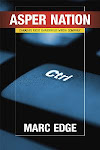Re: Broadcasters have right to carriage fees, Oct. 29
Don Cayo argues that the free market should decide the “fee for carriage” dispute, in which Canada’s television networks want the CRTC to order cable companies to pay them to distribute content they broadcast over the air for free. I agree, but in a free market the cable companies should also be free to decline to pay and to carry the network signals. The CRTC currently requires cable companies to carry network feeds, which results in their advertising being disseminated to many more Canadians than it would through broadcasting alone. That makes the advertising sold by the networks more valuable. The Vancouver Sun (which is owned by one of the television networks seeking fee for carriage, incidentally) pays a trucking company to distribute the hundreds of thousands of copies of its newspaper that it prints daily. Only that way does the advertising it sells become of any value. From that perspective, perhaps the television networks should be paying the cable companies for creating value. Izzy Asper, the founder of Canwest Global Communications (which owns the Vancouver Sun), refused while he was alive to pay one nickel more than he was forced to by the CRTC to support Canadian content when network television was a thriving industry. Now that it is less profitable, his heirs are asking for a regulatory redistribution of profits from another media sector. That hardly sounds like free market economics. The hypocrisy is naked, and the argument is only given credibility by the newspapers the Aspers acquired, as Peter Worthington once noted, “to support their bids before the CRTC.”
Marc Edge
Huntsville, TX
Bye bye trust
3 months ago

